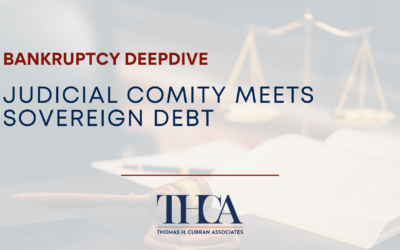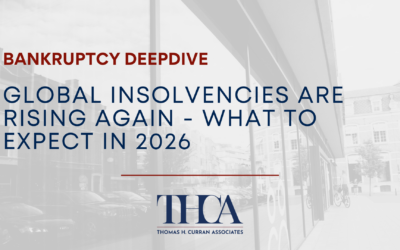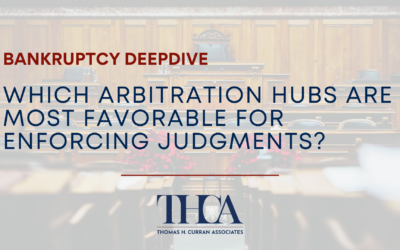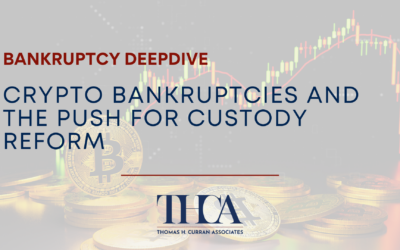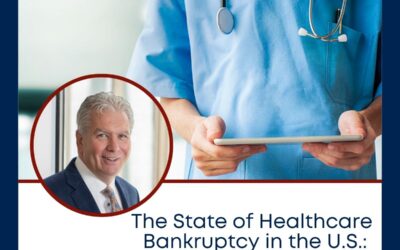What is Chapter 7 Bankruptcy?
Chapter 7 is a form of bankruptcy available to individuals and businesses who need a fresh start. The individuals and businesses are referred to as “debtors” during the bankruptcy proceedings, and Chapter 7 debtors will have their unsecured debts discharged by the Bankruptcy Court at the conclusion of the bankruptcy.
Chapter 7 is a liquidation bankruptcy where the debtor’s assets are taken by the bankruptcy trustee and sold to repay creditors. In a Chapter 7 business bankruptcy, all of the debtor’s assets will be sold to pay creditors and the company will cease operations. However, individuals filing for Chapter 7 bankruptcy are allowed to protect certain property, known as exempt property, from being sold by the trustee.
Who Can File for Chapter 7 Bankruptcy?
Debtors are generally eligible to file for Chapter 7 bankruptcy if they have not filed a Chapter 7 bankruptcy petition during the past eight years and if their income falls below a certain income threshold. That threshold is usually calculated based on the size of the household and the state where the debtor resides. In limited circumstances, a debtor is allowed to file for Chapter 7 bankruptcy when his or her income exceeds that threshold. Debtors with incomes exceeding the Chapter 7 threshold may still be eligible to file for a Chapter 13 reorganization bankruptcy.
How do you File for Chapter 7 Bankruptcy?
A Chapter 7 bankruptcy case begins when the debtor files a petition with the Bankruptcy Court serving the area where the debtor resides. The debtor must also submit the following with the court:
- Schedules of assets and liabilities;
- A schedule showing current income and expenditures;
- A statement of financial affairs; and
- A schedule showing unexpired leases and executory contracts.
The debtors must provide the bankruptcy trustee with a copy of the tax return, or tax transcripts, for the most recent tax year.
Individuals filing for Chapter 7 bankruptcy have additional filing requirements. Those requirements include the filing of a certificate of credit counseling, evidence of payment from employers within 60 days of filing (if there are any), and monthly net income statement.
What Debts May Be Discharged Through Chapter 7 Bankruptcy?
Generally, it is unsecured debts that are discharged in a Chapter 7 bankruptcy proceeding. Unsecured debts are those for which the debtor has not provided any collateral that can be seized by a creditor. Some common examples of unsecured debts include credit cards, medical bills, personal loans, and amounts owed as the result of a court judgment. In most Chapter 7 proceedings, the unsecured creditors receive a small portion of what they are owed or nothing at all.
Secured debts, which include mortgages and auto loans, may also be discharged. Nevertheless, the creditor may still have the right to repossess the debtor’s property for non-payment.
Are There Debts That Cannot Be Discharged In Chapter 7 Bankruptcy?
Several types of debt cannot be discharged through a Chapter 7 bankruptcy proceeding. In other words, you will still need to pay them even when the Bankruptcy Court has discharged your other unsecured debts. Non-dischargeable debts include such things as alimony, child support, student loans, and some tax debts.
Can Filing for Chapter 7 Bankruptcy Stop Creditors From Harassing Me?
When a debtor files for bankruptcy the court will issue an automatic stay that stops all collection actions by creditors, including most lawsuits against the debtor. The bankruptcy stay is one of the most beneficial features of the U.S. bankruptcy system. The automatic stay will not apply to such things as child support, spousal support, or criminal proceedings and will not stop collection efforts for debts incurred after the bankruptcy filing.
Do Married Couples Need to File a Joint Chapter 7 Bankruptcy Petition?
A married couple is allowed to file a joint Chapter 7 petition, but they are not required to do so. But, when only one spouse files for bankruptcy, the non-filing spouse will not receive the benefits of bankruptcy. That means the non-filing spouse may still be jointly liable for certain debts that were discharged for the filing spouse. One benefit that the non-filing spouse may enjoy is that the bankruptcy filing will not appear on his or her credit report.
Additional Questions About Bankruptcy?
Contact the experienced bankruptcy attorneys at Thomas H. Curran Associates. Our attorneys have decades of bankruptcy experience and can answer any questions you may have regarding Chapter 7 bankruptcy and whether it is the best option for addressing your financial difficulties.
Bankruptcy Practice Results
Recent successful cases handled by the attorneys from Thomas H. Curran Associates. Find more here »
Supreme Court Denies Final Appeal, Finalizing Judgement Obtained by THCA
On June 24, 2024, the Supreme Court of the United States declined the petition to review filed by Sean Dunne and his ex-wife Gayle...
Thomas H. Curran Associates Secures Appellate Victory as Massachusetts Supreme Judicial Court Denies Appellant’s Attempt to Shortcut Ordinary Appellate Review
Thomas H. Curran Associates recently obtained an appellate victory in the Massachusetts Supreme Judicial Court on May 26, 2023, in the...
Thomas H. Curran Associates win is Affirmed in Florida, U.S. District Court – Client Wins Attorneys Fees
Law: Federal Rule of Civil Procedure 37(a)(5) Case: Premier Capital, LLC v. Larry Bryan (AP) Underlying Bankruptcy Case: In re Larry Bryan...
The Second Circuit Affirms Bankruptcy Fraud Judgment Obtained by Thomas H. Curran Associates, Recognizing the Continuous Concealment Doctrine
Law: Continuous concealment doctrine, 11 USC § 727(a)(2)(A), In re Olivier, 819 F.2d 550 (5th Cir. 1987); In re Boyer, 328 F. App’x 711,...
Thomas H. Curran Associates prevails on barring discharge due to fraud by debtor
Thomas H. Curran Associates recently secured a victory on behalf of an institutional asset manager, where the Bankruptcy Court for the...
Thomas H. Curran Associates prevails on post-trial motions and obtains full security for $23 million dollar financial fraud judgment on behalf of chapter 7 bankruptcy trustee
On February 8, 2022, the United States District Court for the District of Connecticut (Meyer, J.) enter its Order denying defendant Gayle...
Supreme Court Denies Final Appeal, Finalizing Judgement Obtained by THCA
On June 24, 2024, the Supreme Court of the United States declined the petition to review filed by Sean Dunne and his ex-wife Gayle...
Thomas H. Curran Associates Secures Appellate Victory as Massachusetts Supreme Judicial Court Denies Appellant’s Attempt to Shortcut Ordinary Appellate Review
Thomas H. Curran Associates recently obtained an appellate victory in the Massachusetts Supreme Judicial Court on May 26, 2023, in the...
Thomas H. Curran Associates win is Affirmed in Florida, U.S. District Court – Client Wins Attorneys Fees
Law: Federal Rule of Civil Procedure 37(a)(5) Case: Premier Capital, LLC v. Larry Bryan (AP) Underlying Bankruptcy Case: In re Larry Bryan...
The Second Circuit Affirms Bankruptcy Fraud Judgment Obtained by Thomas H. Curran Associates, Recognizing the Continuous Concealment Doctrine
Law: Continuous concealment doctrine, 11 USC § 727(a)(2)(A), In re Olivier, 819 F.2d 550 (5th Cir. 1987); In re Boyer, 328 F. App’x 711,...
Supreme Court Denies Final Appeal, Finalizing Judgement Obtained by THCA
On June 24, 2024, the Supreme Court of the United States declined the petition to review filed by Sean Dunne and his ex-wife Gayle...
Thomas H. Curran Associates Secures Appellate Victory as Massachusetts Supreme Judicial Court Denies Appellant’s Attempt to Shortcut Ordinary Appellate Review
Thomas H. Curran Associates recently obtained an appellate victory in the Massachusetts Supreme Judicial Court on May 26, 2023, in the...
Thomas H. Curran Associates win is Affirmed in Florida, U.S. District Court – Client Wins Attorneys Fees
Law: Federal Rule of Civil Procedure 37(a)(5) Case: Premier Capital, LLC v. Larry Bryan (AP) Underlying Bankruptcy Case: In re Larry Bryan...
Bankruptcy Areas of Expertise
- Bankruptcy Litigation
- Bankruptcy Trustee Representation
- Avoidance & Recovery Actions
- Chapter 11 Trustees & Examiners
- Discharge Litigation
- Bankruptcy Fraud Investigations
- Cross Border Foreign Litigation
- 363 Bankruptcy Sales
- Bankruptcy Preference Actions
- Involuntary Bankruptcy
- Chapter 11/13 Plan Objections
Bankruptcy News
Judicial Comity Meets Sovereign Debt
Judicial comity is a discretionary doctrine by which U.S. courts recognize the legislative, executive, or judicial acts of another nation,...
Global Insolvencies Are Rising Again – What To Expect in 2026
After several years of economic turbulence, a renewed rise in global insolvencies is expected in 2026. According to Allianz Trade’s Global...
Which Arbitration Hubs Are Most Favorable for Enforcing Judgments?
As insolvency disputes increasingly intersect with international arbitration, creditors are asking: which jurisdictions provide the most...
Crypto Bankruptcies and the Push for Custody Reform
The crypto sector remains under intense financial and regulatory scrutiny. The U.S. House of Representatives passed the Digital Asset...
The State of Healthcare Bankruptcy in the U.S.: Why 2025 Is a Turning Point
Jennifer Riggins sits down with Thomas Curran, Managing Partner of Thomas H. Curran Associates, to unpack the accelerating wave of...
Expanding in the Southwest: From Insolvency in Oklahoma to Asset Recovery in Texas
In this episode, Jennifer sits down with Thomas Curran, founder of Thomas H. Curran Associates, to explore the rapidly evolving world of...
Judicial Comity Meets Sovereign Debt
Judicial comity is a discretionary doctrine by which U.S. courts recognize the legislative, executive, or judicial acts of another nation,...
Global Insolvencies Are Rising Again – What To Expect in 2026
After several years of economic turbulence, a renewed rise in global insolvencies is expected in 2026. According to Allianz Trade’s Global...
Which Arbitration Hubs Are Most Favorable for Enforcing Judgments?
As insolvency disputes increasingly intersect with international arbitration, creditors are asking: which jurisdictions provide the most...
Crypto Bankruptcies and the Push for Custody Reform
The crypto sector remains under intense financial and regulatory scrutiny. The U.S. House of Representatives passed the Digital Asset...
Judicial Comity Meets Sovereign Debt
Judicial comity is a discretionary doctrine by which U.S. courts recognize the legislative, executive, or judicial acts of another nation,...
Global Insolvencies Are Rising Again – What To Expect in 2026
After several years of economic turbulence, a renewed rise in global insolvencies is expected in 2026. According to Allianz Trade’s Global...
Which Arbitration Hubs Are Most Favorable for Enforcing Judgments?
As insolvency disputes increasingly intersect with international arbitration, creditors are asking: which jurisdictions provide the most...
Contact Us
Are You In Need of Legal Counsel for a Bankruptcy Matter, Business Transaction, or Commercial Litigation?
Contact our team today.
Call us at (617) 207-8670 or use the quick contact form below.
Austin Office
7710 N. FM 620
Building 13-D
Austin, TX 78726
Boston Office
15 Broad Street
Suite 610
Boston, MA 02109
New York Office
305 Broadway, Suite 700
New York, NY 10007
London Office
The Leadenhall Building
Level 30
122 Leadenhall Street
London EC3V 4AB
Tags: what is chapter 7 bankruptcy how to file for bankruptcy chapter 7 filing personal bankruptcy chapter 7

